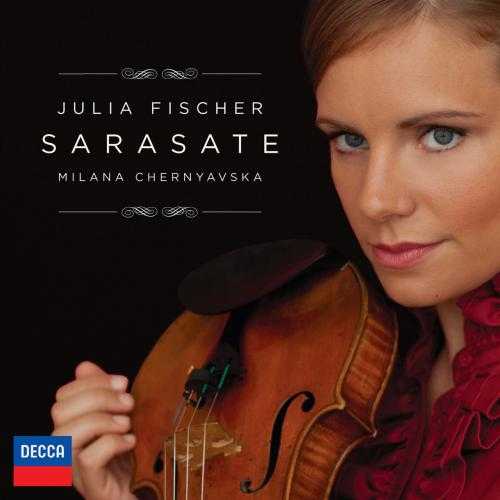
Composer: Pablo de Sarasate
Performer: Julia Fischer, Milana Cheryavska
Format: FLAC (tracks)
Label: Decca
Release: 2014
Size: 700 MB
Recovery: +3%
Scan: cover
01. Spanish Dances (2) for Violin and Piano, Op. 26
02. Jota aragonesa, Op. 27
03. Sérénade andalouse, Op. 28
04. El canto del ruiseñor, Op. 29
05. Spanish Dances (2) for Violin and Piano, Op. 21
06. Spanish Dances (2) for Violin and Piano, Op. 22
07. Spanish Dances (2) for Violin and Piano, Op. 23
08. Caprice basque, Op. 24
09. Zigeunerweisen, Op. 20
The dazzling showpieces of violin legend Pablo Sarasate meet their match in Julia Fischer, one of the most sought-after musicians of her generation, delivering virtuoso pyrotechnics in a stunning recital disc.
The key track is Sarasate’s most celebrated composition: Zigeunerweisen (‘Gypsy Airs’). With its heady czardas rhythms and folk flavour, it is best known as a showpiece for violin and orchestra, but Fischer and her long-standing accompanist Milana Chernyavska present it here as it was originally written, for violin and piano.
Fischer’s programme also includes the popular Danzas espanolas. Designed to show off technique, these captivating pieces soon became a top choice for violin encores.
Fischer’s recording will help shine a new light on Sarasate’s music, which she wants to restore to the concert platform. She feels that each of the pieces is a little gem with a mood and story all its own, and says that she wants to communicate the joy and enthusiasm of pieces that make people want to dance or sing.
Sarasate’s contemporaries held him in extremely high regard, with Camille Saint-Saens, Max Bruch and Edouard Lalo all dedicating works to him. He was one of the first violinists to leave acoustic recordings in the pioneering years of the 20th century, recording his Zigeunerweisen in 1904, and his extraordinary writing remains a supreme challenge to violinists over a century after his death in 1908.